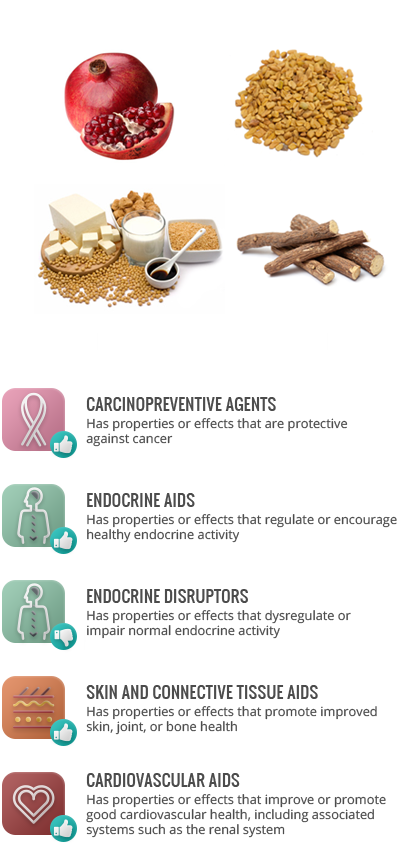Phytoestrogens
Definition
Phytoestrogen refers to estrogen-mimicking compounds that occur naturally in plants, specifically the estrogen estradiol. Some phytoestrogens may cause estrogenic effects, whereas others can cause antiestrogenic effects. Lignans, coumestans, isoflavones, and prenylflavonoids are the major groups of phytoestrogens.
Health considerations
Phytoestrogens and phytoestrogen-containing foods have been suggested as potential therapeutic agents to treat symptoms of menopause. Reviews suggest that dietary phytoestrogens are protective against cancer, bone density loss, and heart disease, though studies are conflicting and evidence is not conclusive about how phytoestrogens affect the body. There has been some concern over the effects of phytoestrogens in soy-based infant formulas.
Keep in mind
Phytoestrogen content in food varies, and can increase or decrease with processing. Isoflavones, phytoestrogens found in soy, are the most heavily researched group. See: Isoflavones.
May be found in
Soy, soy products, tofu, tempeh, flax, sesame seeds, wheat, fenugreek, oats, barley, beans, lentils, pomegranates, carrots, apples, mung beans, rice, alfalfa, hops, beer, fennel, anise, licorice root, mint
References
Obstetrics and Gynecology
Annual Reviews
CELL Trends in Endocrinology & Metabolism
JAMA
Journal of the National Cancer Institute
The Lancet
Journal of Clinical Endocrinology & Metabolism
Alternative names and spellings
Xenoestrogens, Plant estrogens, Dietary estrogens


